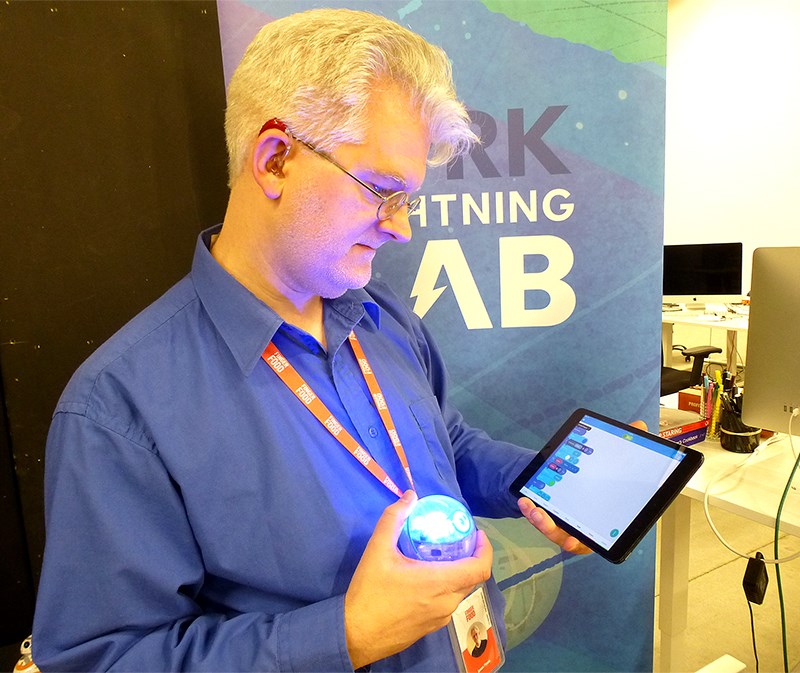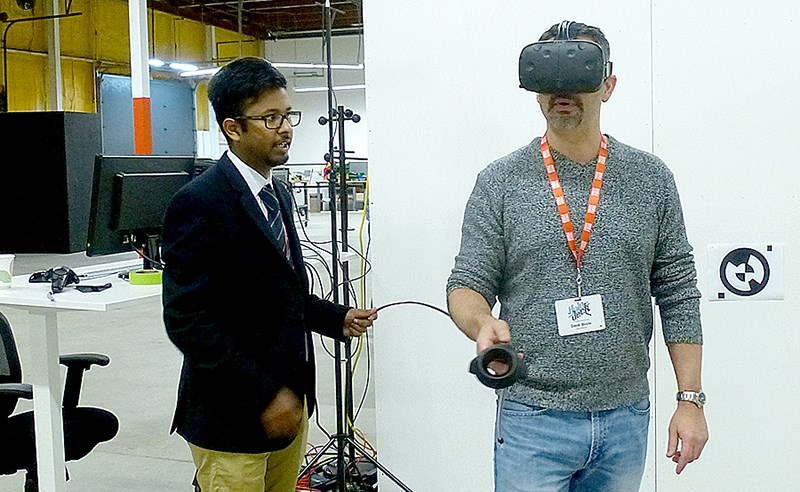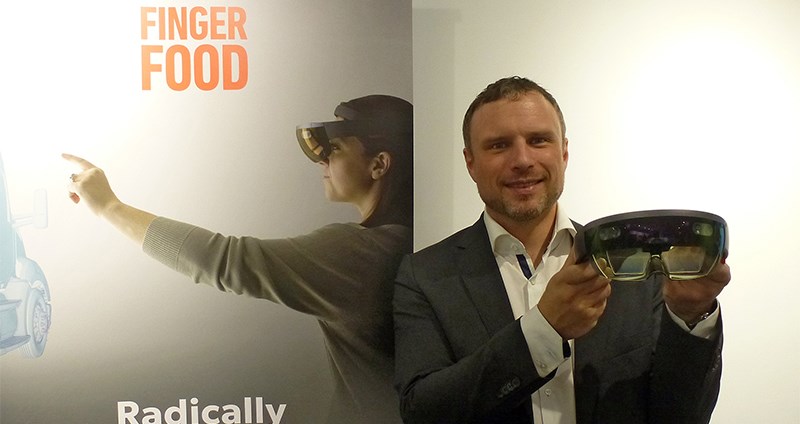A Port Coquitlam company that is quickly becoming one of the region's largest tech firms is being credited for having a small carbon footprint.
Earlier this month, Finger Food Studios — a company that makes virtual reality software for use by business as well as internet-connected hardware for the burgeoning internet of things — has become the first B.C. company to earn a "carbon positive" designation.
The designation comes as Canada attempts to set targets for a low-carbon future and struggles to get provincial unanimity on a carbon pricing plan.
Phil Cull, CFO of Offsetters, a company that helps individuals and companies compensate for their environmental impact, says Finger Food is the first company he has heard of that is purchasing more offsets than required to be carbon neutral.
"The decision to do more than just be carbon neutral is one to be supported. They are a leader in the environmental space for doing that," said Cull, who noted Finger Food Studios paid offsets to compensate for company greenhouse gas emissions (GHGs), with the funds helping to purchase 417.9 hectares of forest for a park that could have been logged.
By keeping the trees on Quadra Island Forestland Conservation Project, carbon dioxide will be absorbed instead of released into the atmosphere, Cull said.
Finger Food CEO Ryan Peterson said the process of becoming carbon neutral was straightforward and cost less than he expected: about $5,000 this year and $10,000 next year as the company has expanded and added more staff.
"We pay for someone to calculate the amount of carbon we use, buy offsets that cover more than we produce and, next year, we'll do that for all our employees," Peterson said.
The Coquitlam resident credits his twin two-year-old sons for inspiring him to take seriously the company's environmental footprint but says he also wanted to get out ahead of government regulation.
"From our business standpoint, we didn't want to wait to be regulated if we can add to our positive impact. We want to be an advocate for this for the rest of the world and show how how it's possible," Peterson said.
The company is also buying offsets to compensate for its 100 employees, who work out of three offices, including an electrical fabrication shop for producing products that connect to the internet.
But Peterson noted that because of the amount of travel he does for business, his carbon footprint was one of the largest by far.

In addition to reducing its carbon footprint, Finger Food has been trying to make a local impact on School District 43. It developed the SPRK Lightning Lab to make coding and programming fun for young students using Spheros and donated 180 of the programmable robot toys to SD43 for use in middle schools. It also donated $25,000 to SD43 to help implement a programming initiative for students in all grades.
The Spheros and the app Finger Food developed were on display Dec. 9 at a company open house at its 25,000 sq. ft. studio, called the Holodeck (named for the holographic technology on Star Trek).
At the open house, Peterson and company founder Trent Shumay showed how experience in developing video games enabled Finger Food to create mixed, augmented and virtual reality tools to help businesses show off their products or develop new ones.

People wearing HTC 5 virtual reality headsets got to experience what it's like to be underwater surrounded by whales and sharks, stand at the edge of the Thames, where river reclamation work is taking place, re-arrange furniture in a living room and design the front of a large truck.
Peterson said virtual reality will further help companies reduce their carbon footprints because they can design products without having to build models. "They can reduce their carbon footprint for innovation."
WHAT IS A CARBON OFFSET?
A carbon offset is a credit for greenhouse gas (GHG) reductions achieved by one party that can be purchased and used to compensate (offset) the emissions of another, according to the David Suzuki Foundation.
WHO IS DOING IT?
• School District 43 is required by the provincial government to be carbon neutral and, since 2010, has been paying $25 per ton for its greenhouse gases after tallying up all its energy and paper consumption. Although SD43 has reduced its GHG emissions by 14% since 2011, it was still required to pay $194,696.25 for 7,417 tons of C02e in offsets this year. The funds are then redistributed by the province to pay for school energy saving projects.
THE CITIES
• As signatories to the province's 2007 Climate Action Charter, cities were required to be carbon neutral by 2012 and set additional goals to reduce energy consumption. Although they aren't required to pay offsets like the school district, they are credited for projects that reduce greenhouse gasses.
To become carbon neutral, they have been installing energy sharing systems and waste heat recovery systems, retrofitting with LED lighting, lighting controls and programmable thermostats, participating in Metro Vancouver waste diversion projects, and educating staff and the public about reducing energy and waste, among other things.
In addition, the cities of Coquitlam, Port Coquitlam and Port Moody received offset credits for the $3.5 million Vancouver Landfill Gas Capture Optimization Project installed to burn off methane, which, like carbon dioxide, is an important greenhouse gas. Offsets generated by this project, paid for through garbage tipping fees, enabled the cities to achieve carbon neutrality.



